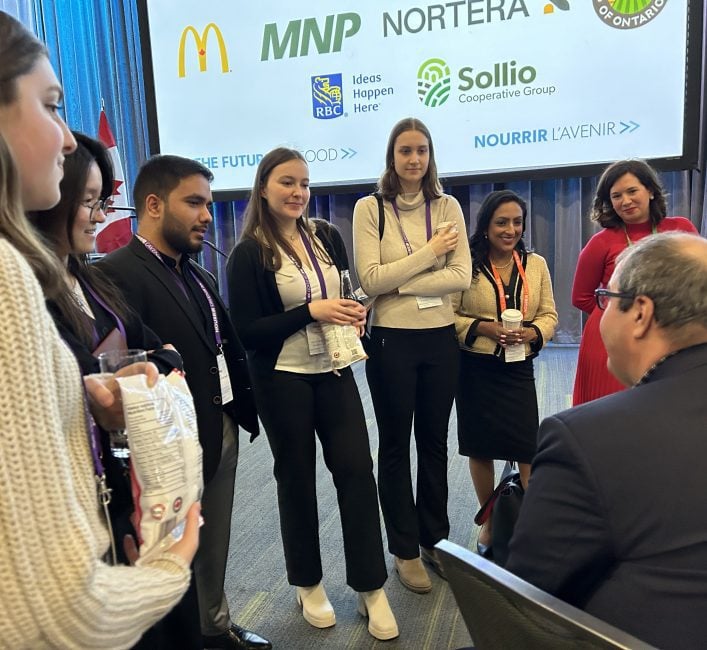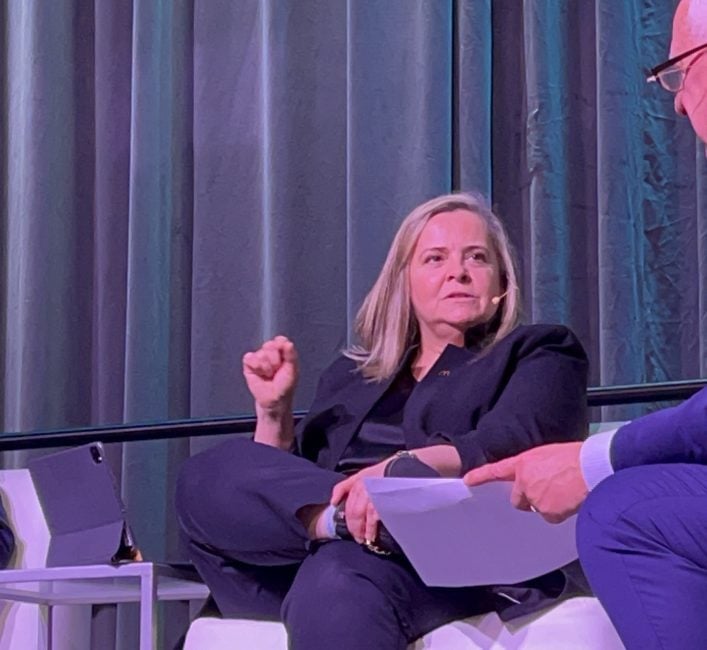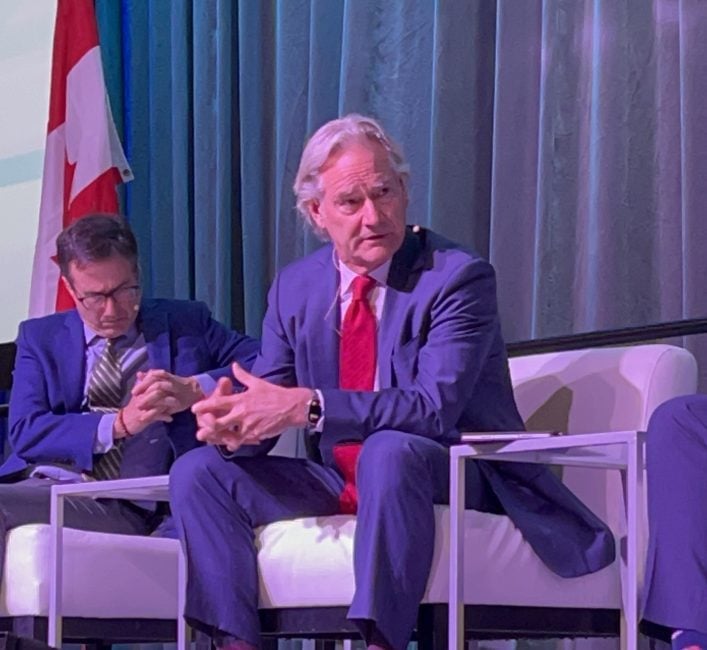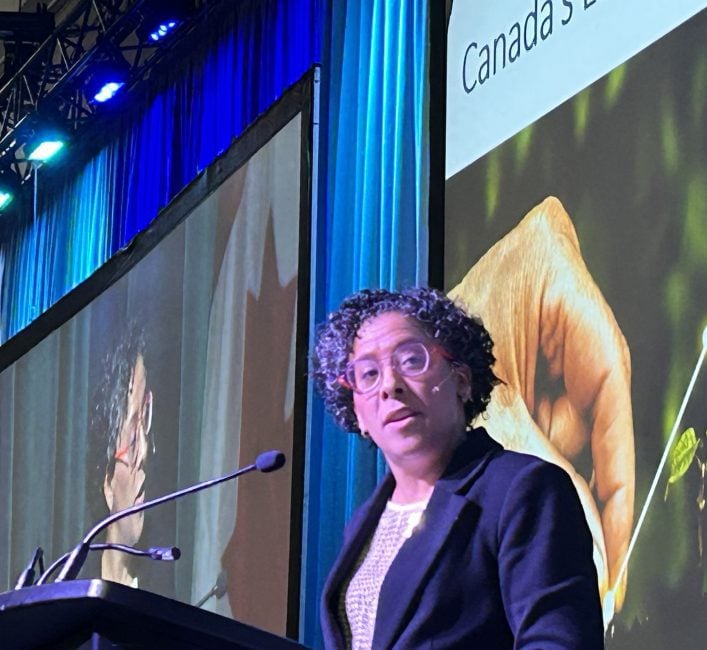Canada’s Agriculture Day: some highights from Ottawa

Glacier FarmMedia – The Canadian agriculture industry celebrated Canada’s Agriculture Day in Ottawa Feb. 13 at the Future of Food conference. Reporter Ed White shares some highights and photos from the event.
Read Also
Carbon exemption amendments costly to farmers: PBO
Glacier FarmMedia – Amendments to Bill C-234 will cost Canadian farmers nearly $90 million a year, according to a report…
Below: The Future of Food event is filled with university students and other young ag-related folk. The group of students shown are from various programs at Queen’s University, here busily quizzing Murad Al-Katib about his pioneering work with AGT.

What does “sustainability” mean in the real world? Michelle Boudria (shown below), president and CEO of McDonald’s, Matt Koehler, managing director of McCain’s, and Kendra Donnelly, CFO of Rimrock Cattle Co discussed the meaning of sustainability during a panel. Rimrock is committed to making biodigesters work; McCain’s is pledged to 100 per cent of acreage in regenerative systems by 2030; McDonald’s continues to double-down on Canadian production and supporting sustainable systems like the CRSB initiative in Canadian beef. It’s a real thing that will get bigger, they said.

Michael McCain of Maple Leaf Foods discussed the challenge of getting consumers to care enough to pay for the food product and agriculture improvements they say they want to see. Maple Leaf found itself out ahead of the public in terms of some issues of sustainability and food quality, which was frustrating. He challenged the agriculture industry to help with the evolution of consumer support.

Farm Credit Canada has done a lot to get a big youth component into this event, including with these young-farmer emcee’s.

Below, Justine Hendricks, FCC president and CEO, talks about where her lender – a huge one in ag – can make a difference. FCC sees farmers facing “an incredible opportunity . . . A generational opportunity . . . If we don’t act, we’re going to miss it.” Canada is uniquely positioned to serve a role in a food-insecure world, she said.

Canada’s Agriculture Day in Ottawa began the evening of Feb. 12, with a forward-looking event hosted by the Canadian Agri-Food Automation and Intelligence Network (CAAIN). In a room packed with Canada’s ag luminaries and ag organization leaders, legendary Canadian ag visionary Kim McConnell quizzed Ted McKinney, a former state agriculture minister, Trump administration senior U.S. Department of Agriculture official, and presently CEO of the National Association of State Departments of Agriculture on his outlook for farmers both south and north of the line.

McKinney is bullish on the future of North American agriculture, with innovation allowing farmers to become far more productive and resilient in the face of climatic and other environmental challenges. But he’s worried about the potential for the world-wide growth of populist politics to unravel the international trading system that has brought so much good to the world.
He also thinks some Canada-U.S. ag disputes could soon heat up, with American farmers and ag interests upset by Canada’s perceived duplicitousness on the dairy dispute – “We feel betrayed,” he said – and Canadian ag exporters concerned about the “Product of the USA” drive.
He said Canadian and U.S. agriculture should industries try to work together on common interests and keep disputes contained.
McConnell is an unabashed optimist about the future of Canadian agriculture and farming, which he sees as “the most exciting part of the Canadian economy,” but he worries that rules and regulations could strangle or slow some of the potential developments that so many people in the rest of Canadian society depend upon.
He’s hoping a concerted effort from farmers, their representatives, ag companies and provincial leaders can boost the awareness of agriculture within Ottawa’s bureaucratic and political structures so that unhelpful policies and approaches can be avoided.
Source: Farmtario.com

